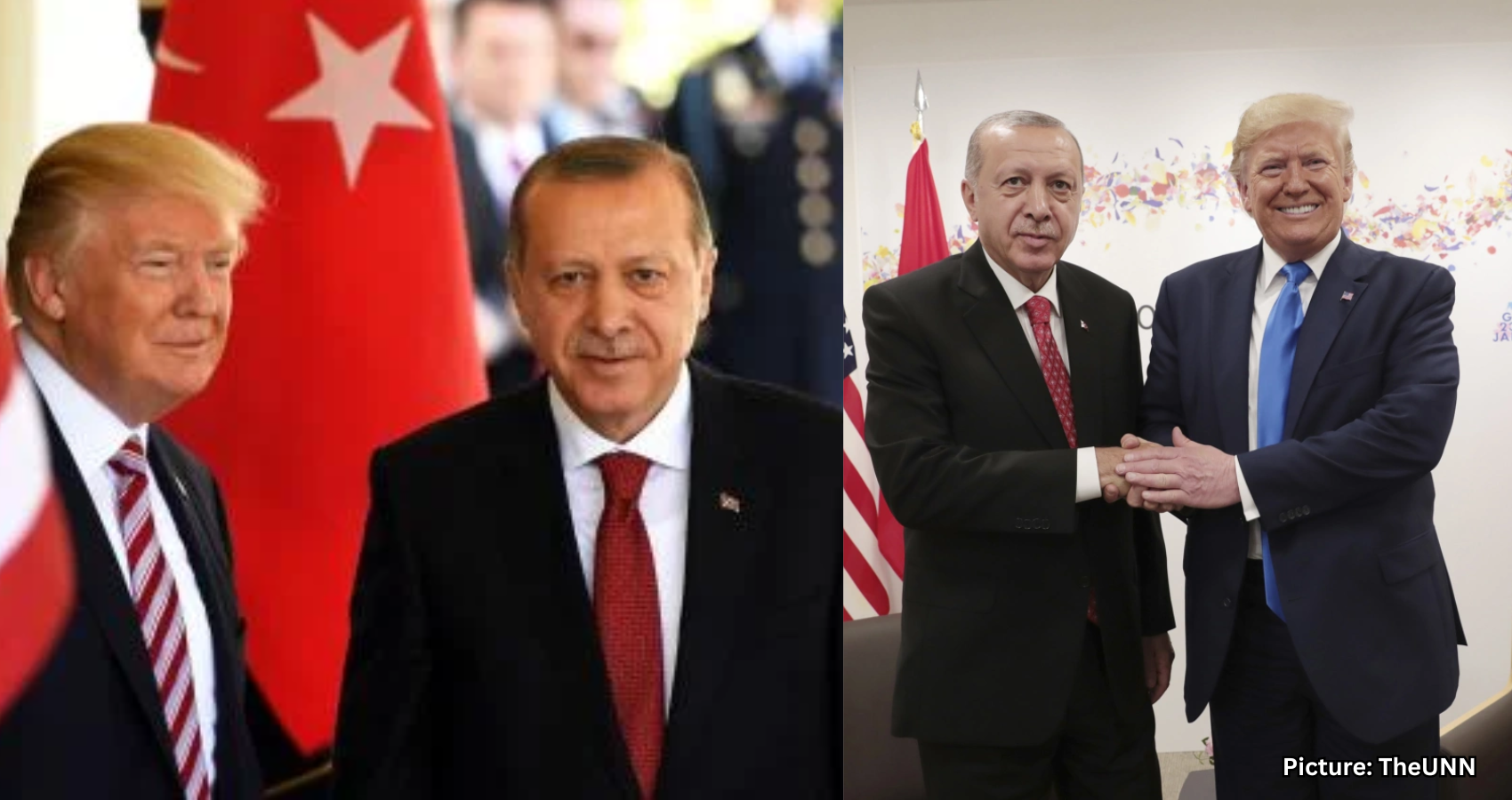Turkey is positioning itself for greater influence in Gaza as President Recep Tayyip Erdogan rebuilds relations with Washington following a recent ceasefire agreement.
Turkey is seeking to expand its influence in Gaza through construction contracts and peacekeeping roles as President Recep Tayyip Erdogan works to rebuild trust with Washington following the recent ceasefire agreement.
During a celebration of the ceasefire in Sharm el-Sheikh, President Donald Trump singled out Erdogan for extraordinary praise, crediting his leadership for helping to achieve the ceasefire. “A guy who’s been a friend of mine for a long time. I don’t know why I like the tough people better than the soft, easy ones,” Trump remarked. “This gentleman from a place called Turkey is one of the most powerful in the world… He’s a tough cookie — but he’s my friend.”
Throughout the conflict, Erdogan has condemned Israel’s military actions in Gaza and defended Hamas against U.S. policy, while avoiding a prominent diplomatic role in the resolution of the war. A former senior Israeli intelligence official questioned what had changed in Erdogan’s approach, noting, “What prompted him, two years later, to return to the arena of power? The most iconic image is him sitting next to Trump at the U.N. — that’s where the seeds were planted. Why did Trump suddenly seat him by his side? He was likely told, ‘He’s the one who can bring us Hamas.’”
Trump’s public endorsement highlights a new level of trust between Washington and Ankara. However, Turkish media reports indicate that Erdogan initially refused to land his plane in Egypt after learning that Israeli Prime Minister Benjamin Netanyahu, personally invited by Trump, might attend the summit. Erdogan only agreed to land once it was confirmed that Netanyahu would not be present.
Sinan Ciddi, a senior fellow and director of the Turkey Program at the Foundation for Defense of Democracies, described Erdogan’s actions as “classic Erdogan theater.” He suggested that Erdogan’s refusal to land until Netanyahu was out of the picture was a strategic move to gain domestic political capital and enhance his image in parts of the Muslim world.
Ciddi also recalled a significant moment when Erdogan stated on American television, “I don’t consider Hamas to be a terrorist organization, but a resistance movement.” He noted that Erdogan made this declaration on American soil without facing any repercussions.
According to Ciddi, Erdogan’s ambitions extend beyond mere diplomacy. “He wants Turkish construction companies to rebuild Gaza, Turkish troops to take part in any enforcement mission, and Turkey to serve as guarantor for the Palestinians,” he explained. This strategy would provide Ankara with both economic and political leverage, securing contracts for its companies, deploying troops on the ground, and ensuring a seat at every table discussing Gaza’s future.
Ciddi emphasized that Turkey’s ambitions in Gaza are part of a broader strategic calculus. “Trump’s demands from Erdogan regarding the F-35 were not just predicated on Gaza,” he said. “They included ending Turkey’s energy dependence on Russia, addressing the S-400 missile issue, and playing a constructive role in stabilizing Gaza.” He noted that while Erdogan has resisted certain aspects of this package, his role in facilitating the ceasefire is an attempt to rebuild trust with Washington and demonstrate that Turkey can once again be a valuable NATO partner.
Avner Golov, vice president of the Mind Israel think tank, expressed concerns from Israel’s perspective regarding Iran’s influence in the region. “From Israel’s perspective, an Iranian land bridge from Tehran westward through Iraq, Lebanon, Syria, and Israel must not exist. Iran remains the biggest challenge,” Golov stated. He pointed out that in the current geopolitical landscape, the Muslim Brotherhood axis, led by Turkey and Qatar, is gaining prominence. “Qatar brings the money; Turkey brings influence as a regional power,” he added.
Golov, who previously served as a Senior Director at Israel’s National Security Council, noted that early U.S. efforts to center the post-war framework around Saudi Arabia and the United Arab Emirates have diminished. “In the current deal, the big winners are not the UAE and Saudi Arabia, which would have served Israel’s interests, but Turkey and Qatar,” he said. “Before the deal, Erdogan was already a major player, and yesterday he used a veto — Trump invited, and Erdogan vetoed. Those who didn’t want Erdogan on the Syrian Golan Heights will get him in Gaza.”
He suggested that Israel and the U.S. should counterbalance Turkey’s rise by revitalizing cooperation with the Gulf states. “Israel has what Qatar and Turkey don’t — technology and credibility,” Golov remarked. “If Israel links its innovation with Gulf energy and resources, it can build a regional hub that strengthens the pro-American camp and weakens both the Muslim Brotherhood and Iran.”
A former Israeli official emphasized that Washington should view Turkey and Qatar as stakeholders rather than neutral mediators. “They promised to dismantle Hamas together with Egypt,” he said. “They are not mediators — they are owners of the business. They have to deliver.”
Ciddi expressed skepticism about the likelihood of Israel accepting any Turkish military presence in Gaza. “In Israel’s eyes, Turkish forces in Gaza would be a pathway to re-legitimizing Hamas,” he noted. “That’s a hard line.”
As the ceasefire takes hold, Erdogan’s calculated maneuvers have already secured him a prominent role on the international stage. The coming weeks will reveal whether Turkey can translate this visibility into real power or if Israel and Washington will find ways to limit Ankara’s influence.
Source: Original article

